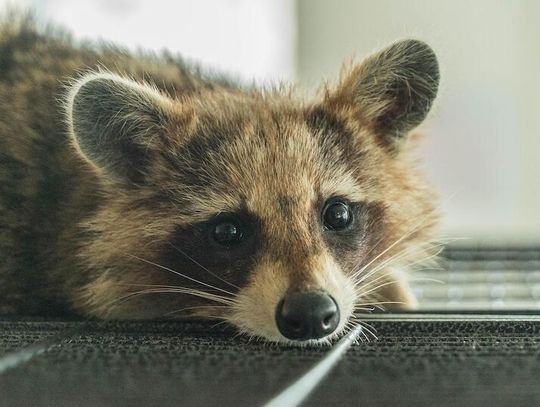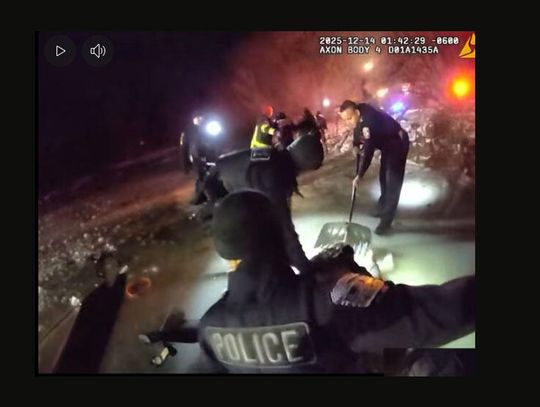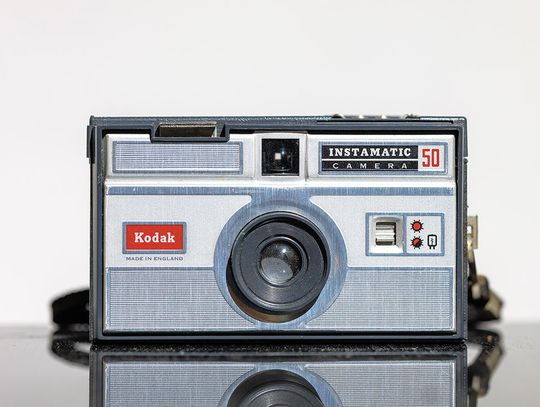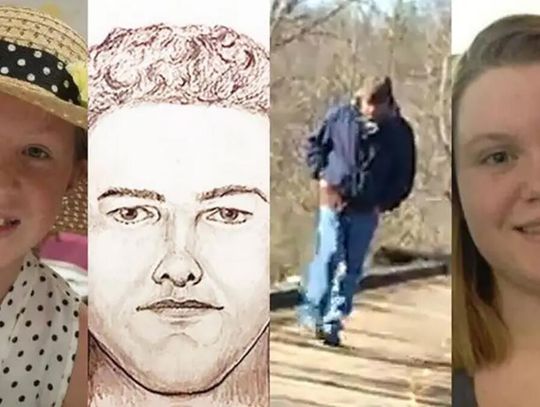Niedawno prowadziłem lekcję dla licealistów, którym opowiedziałem o wojennych doświadczeniach moich rodziców. Mówiłem o moim ojcu, który pięć lat spędził w obozie koncentracyjnym w Buchenwaldzie i o mojej mamie, która przeżyła trzy lata w niemieckim obozie pracy.
Po wykładzie jeden z uczniów zadał mi pytanie. Myślę, że jego brzmienie było podyktowane nadchodzącymi świętami i wszechobecnym”pokojem na Ziemi i wszystkimi ludźmi dobrej woli”. Zapytał mnie, czy przebaczyłem Niemcom to, co zrobili moim rodzicom. Pytanie zaskoczyło mnie. Nigdy się nad tym nie zastanawiałem.
Oczywiście wiele razy myślałem o tym, czy moi rodzice wybaczyli Niemcom. Wiem, że mój ojciec nigdy po wojnie nie spotkał osobiście swoich oprawców. Zawsze powtarzał, że obozowi strażnicy to byli brutalni ludzie, którzy bili go bez powodu i zabijali jego przyjaciół. Podczas jednej zimowej nocy strażnicy bez końca liczyli więźniów, którzy stali w cienkich ubraniach w śniegu i na mrozie. Do rana prawie stu więźniów zmarło. Mój ojciec czuł gniew wobec wszystkich Niemców.
Moja mama rzadko opowiadała o swoich wojennych przeżyciach. Kiedy pytałem ją o Niemców, mówiła zwykle: „Kiedy dawali nam chleb – jedliśmy, kiedy nas bili – uciekaliśmy”.
Wielu ludzi powtarza, że trzeba wybaczać, że to wszystko działo się dawno temu. Ale dla moich rodziców to nigdy nie było dawno temu. Moi rodzice dźwigali ból i koszmar wojny każdego dnia.
Kiedy mój ojciec umierał w hospicjum, zdarzało się, że nie rozpoznawał lekarzy i pielęgniarek, przekonany, że to strażnicy z obozu koncentracyjnego. Zdarzało się, że nie rozpoznawał i mnie. Patrzył na mnie z lękiem, jakbym był jednym z oprawców.
Pod koniec życia mojej mamy zapytałem ją, czy wybaczyła Niemcom. Zamyśliła się. Jestem pewien, że myślała wtedy o swojej matce, siostrze i dziecku siostry, zamordowanych przez Niemców, którzy wdarli się do ich domu, na wsi we wschodniej Polsce. Moja mama widziała, jak ginęli, zanim udało jej się wyskoczyć przez rozbite okno i uciec do lasu.
Odpowiedź mojej mamy zaskoczyła mnie. Byłem pewien, że tak jak ojciec powie, że wszyscy Niemcy byli źli. Ale nie, mama opowiedziała mi o tym, jak trafiła na roboty. Niemcy zawieźli ją do obozu, gdzie kobiety były traktowane jak mężczyźni i musiały pracować przez szesnaście, osiemnaście albo i dwadzieścia godzin na dobę, przez sześć dni w tygodniu. Mama wiedziała, że długo nie wytrzyma takiego wysiłku, tydzień, może dwa. Ocalił ją niemiecki strażnik.
Z jakiegoś powodu zrobiło mu się żal mojej mamy. Kto wie, co nim kierowało. Mama często mówiła, że Niemcy powtarzali, że wygląda jak Niemka. Może to ją uratowało. A może nie. Jakiekolwiek były motywy tego strażnika, zdołał przenieść moją mamę do innego bloku, gdzie praca nie była tak wycieńczająca. Dzięki temu przetrwała do końca wojny. Na koniec tej historii mama powiedziała: „Niektórzy Niemcy byli dobrzy. Niektórzy byli źli. Wybaczam tym dobrym”.
Wszystko to przebiegło mi przez głowę kiedy ten licealista zapytał, czy wybaczyłem Niemcom krzywdy, które wyrządzili moim rodzicom. Odpowiedziałem: „Nie wybaczam głupcom, którzy twierdzą, że to, co przeżyli moi rodzice nie wydarzyło się lub nie było tak straszne, jak opowiadali”.
Po czym powiedziałem temu chłopcu, dlaczego tak myślę. Opowiedziałem mu, jak w 1989 pojechałem na konferencję naukową do Paderborn, w Niemczech, na której spotkałem pewną panią profesor, która zapytała, czy kiedykolwiek wcześniej byłem w Niemczech. Odpowiedziałem, że tutaj się urodziłem.
Była zaskoczona, więc opowiedziałem jej, że moi rodzice zostali wywiezieni z Polski do niemieckich obozów, a ja urodziłem się po wojnie w obozie dla uchodźców. Odpowiedziała: „Pana rodzice mieli szczęście, że podczas wojny trafili do Niemiec. Tutaj mieli lepiej niż w Polsce. Mieli zapewnione schronienie i dobre jedzenie. W ten sposób uciekli od chaosu wojny”.
Popatrzyłem na nią z niedowierzaniem, że powiedziała coś tak niedorzecznego. Pomyślałem o tacie i mamie, o tym co stracili i jak cierpieli, jak przez całe życie nosili blizny pozostawione przez wojnę. Pomyślałem o koszmarnych snach mojego ojca, o oku, które wybił mu strażnik w obozie. Pomyślałem o mojej matce, o jej chłodzie i braku innych uczuć niż smutek, gniew i nienawiść. Jak przekierowała te uczucia na mojego ojca, moją siostrę i mnie.
Nie wiedziałem, co odpowiedzieć tej niemieckiej profesor, więc nie powiedziałem nic. Jest jedną z tych osób, którym nie potrafię wybaczyć, jest jedną z głupców.
To właśnie powiedziałem temu uczniowi, który spytał, czy przebaczyłem Niemcom. Przebaczyłem tym, którzy zrozumieli to, co się wydarzyło podczas wojny. Nie wybaczam tym, którzy temu zaprzeczają. Potem długo myślałem o mojej odpowiedzi. I o mojej mamie, która z całym swoim chłodem, gniewem i nienawiścią wciąż była w stanie znaleźć w swoim sercu odrobinę ciepła, wystarczającą by wybaczyć niektórym Niemcom.
Pomyślałem, że zamiast potępiać głupców i wybaczać tym mądrzejszym, może powinienem okazać więcej dobrej woli i zrozumieć ich wszystkich.
Christmas and Forgiveness
I recently gave a talk to a high school class about my parents and their experiences under the Germans during World War II. I talked about my father who spent 5 years in Buchenwald concentration camp, and I talked about my mother who spent almost 3 years in various slave labor camps in Germany.
After my talk, a student asked me a question. I’m sure it was in part sparked by the Christmas season, the talk that you hear at this time of year about “Peace on Earth and Good Will to all Men.” He asked me whether or not I forgave the Germans for what they did to my parents.
The question stopped me. I haven’t thought about it before, about whether or not I forgave the Germans.
Of course, I had thought about whether or not my parents forgave the Germans. I knew my father never met a guard he would forgive. He said they were brutal men who beat him and killed his friends for no reason. One sub-zero winter night, these guards ran roll calls over and over. Hundreds of prisoners in pajama thin clothes stood outside in the cold and snow. By morning, about a hundred prisoners were dead. My dad felt anger toward all the Germans.
My mother seldom talked about her experiences during the war. If you asked her what they were like, most of the time she would just say, "If they give you bread, you eat it. If they beat you, you run away."
A lot of people say, forget it; it was all a long time ago. For my parents, it was never a long time ago.
My parents carried the pain and nightmares with them every day.
When my father was dying in a hospice, there were times when he was sure that the doctors and the nurses were the guards who beat him when he was a prisoner in the concentration camp. There were also times when he couldn’t recognize me. He looked at me and was frightened, as if I were one of the guards.
I remember asking my mom once toward the end of her life if she forgave the Germans. She thought for a while. I’m sure she was thinking about her mother, her sister, and her sister’s baby. They were all killed by Germans who came to her farm house in eastern Poland. My mother saw this and escaped, at least for a while, by jumping through a broken window and making her way to a forest.
What my mother finally said surprised me. I thought she was going to say what I had heard my father say over and over that all the Germans were evil. But that’s not what she said. She told me a story about when she first was brought to Germany. She was taken to a camp where they worked the women just like they were men, making the women work sixteen, eighteen, twenty hour shifts, six days a week. She said that she knew she couldn’t survive that for long, maybe a week, maybe two.
She was saved by a German guard.
For some reason, he took pity on her. Who knows what his motives were? My mother often said that Germans thought she looked like a German, a niemka in Polish. Maybe this was what got her saved. Maybe not. Whatever it was that motivated this guard, he succeeded in getting her transferred to a different work area where the work was not killing work. She survived the war.
After telling me this story, she said, “Some Germans were good. Some bad. I forgive the good ones.”
All of this went through my head when the student asked me if I forgave the Germans, and here’s what I said to him, “I don’t forgive the stupid ones, the ones who think that what happened to my parents didn’t happen or it wasn’t as bad as people say.”
And I told this student why I was saying this. I told him how I had gone to an academic conference in Paderborn, Germany, in 1989, and I met a woman, a professor, there. We were chatting, and she asked me if I had ever been in Germany before. I said, “Yes, I have. I was born in Germany in fact.”
She was surprised and asked me about this. I told her my parents had been kidnapped by the Germans and brought to work in the slave labor and concentration camps in Germany, and that I was born in a refugee camp after the war.
She said, “Your parents were lucky they were brought to Germany during the war. It was better for them here than in Poland. Here they got good food, shelter. Here they got to escape the chaos of the war.”
I looked at her and couldn’t believe that she could say such a thing. I thought about my father and mother and what they lost and suffered during the war, and I thought about how their lives after the war never shook the scars of the war. I thought about my father’s nightmares and his dead eye, the one blinded by a guard; and I thought about my mother’s coldness, her inability to feel much beyond grief and anger and hatred. I thought about how she directed that coldness and anger and hatred toward my father, my sister, and me.
I didn’t know what to say to this German professor, so I didn’t say anything.
She was not the kind of person I could forgive. She was one of the stupid ones.
This is what I told the student who asked if I forgave the Germans. Some I forgave, the smart ones who recognized what had happened during the war. Some I didn't forgive, the ones who didn't recognize what had happened.
But later as I kept thinking about what the student had asked and what I had answered, I started thinking more and more about my mother. With all she had experienced in the war and with all of her coldness, anger, and hate, she was still able to find some human warmth in her heart. She was still able to forgive some Germans.
This makes me think that I should be able to do more than condemn the stupid ones and forgive the smart ones, that I should be able to feel more of the good will toward all of them than I do.
John Guzlowski
amerykański pisarz i poeta polskiego pochodzenia. Publikował w wielu pismach literackich, zarówno w USA, jak i za granicą, m.in. w „Writer’s Almanac”, „Akcent”, „Ontario Review” i „North American Review”. Jego wiersze i eseje opisujące przeżycia jego rodziców – robotników przymusowych w nazistowskich Niemczech oraz uchodźców wojennych, którzy emigrowali do Chicago – ukazały się we wspomnieniowym tomie pt. „Echoes of Tattered Tongues”. W 2017 roku książka ta zdobyła nagrodę poetycką im. Benjamina Franklina oraz nagrodę literacką Erica Hoffera, za najbardziej prowokującą do myślenia książkę roku. Jest również autorem dwóch powieści kryminalnych o detektywie Hanku Purcellu oraz powieści wojennej pt. „Road of Bones”. John Guzlowski jest emerytowanym profesorem Eastern Illinois University.
—
John Guzlowski's writing has been featured in Garrison Keillor’s Writer’s Almanac, Akcent, Ontario Review, North American Review, and other journals here and abroad. His poems and personal essays about his Polish parents’ experiences as slave laborers in Nazi Germany and refugees in Chicago appear in his memoir Echoes of Tattered Tongues. Echoes received the 2017 Benjamin Franklin Poetry Award and the Eric Hoffer Foundation's Montaigne Award for most thought-provoking book of the year. He is also the author of two Hank Purcell mysteries and the war novel Road of Bones. Guzlowski is a Professor Emeritus at Eastern Illinois University.
fot.pxhere.com










